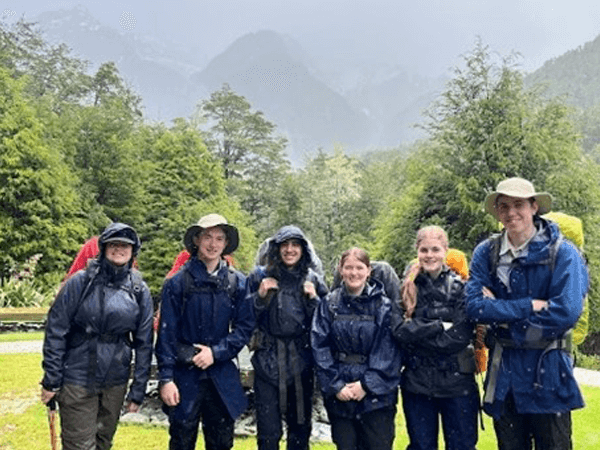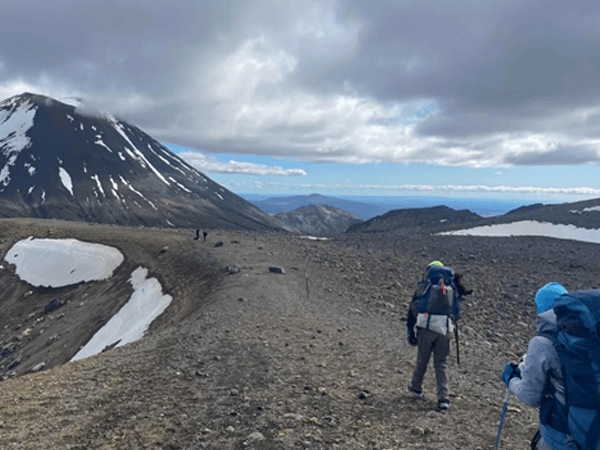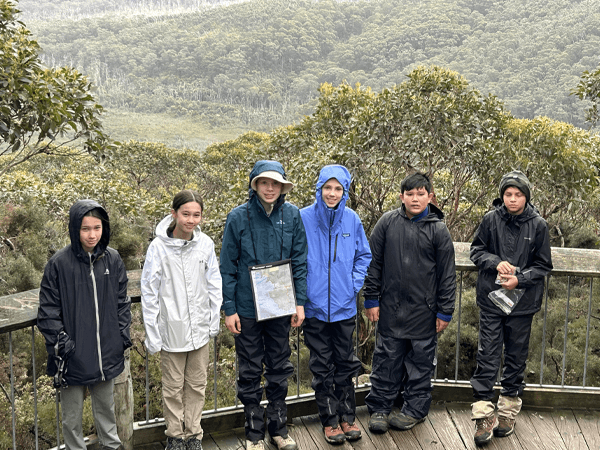Doing Your Best…
Understanding What Scouting is Really About
![]()
Every few months youth members and young adults are presented with Queen’s Scout or Baden-Powell Scout Awards. These peak awards encapsulate the Purpose of Scouting.
The following article is adapted from a speech Ayla Jones delivered at the New South Wales Queen’s Scout and Baden-Powell Awards presentation ceremony in April 2019. We thought it was worth sharing, wondering how many others have had similar realisations on their journeys through Scouting.
This year I was honoured to receive my Baden-Powell Scout Award after 8 years working towards it in the Rover Scout Section. I took some time to reflect on the journey that I had taken and my sense of personal growth and accomplishment. Although I had planned each stage of my award, the highest highs and lowest lows came unexpectedly, and are the most memorable moments for me.
Through my involvement with the New Youth Program and The Adventure Begins, I am consistently reminded of the Purpose of Scouting, which involves the development of our young people, physically, spiritually, intellectually emotionally and socially, both as individuals and as members of their communities. Listening to the citations of the Venturer Scout and Rover Scout awardees at the most recent peak awards ceremony, it’s clear that today’s Scouts are absolutely fulfilling that Purpose –
- From developing outdoor skills in bushwalking, cycling, canoeing, sailing, abseiling, caving, canyoning, and SCUBA diving; to serving the community with St John’s, the Rural Fire Service, Surf Life Saving, Sailability, or the State Emergency Service.
- Expressing themselves through photography and musicals, raising money for worthy causes, improving their local environment, undertaking overseas travel, and of course giving service and support to younger sections; Scouting has assisted all of us in overcoming personal challenges and making a positive impact on the world.
Scouting is unique, in that the pathway to achievement lies not through competing against others, but in challenging yourself to be the best person you can possibly be. It promotes Learning by Doing – that is, trying things out; and accepting missteps and failures as natural steps on the road to success. Through a connection with nature and the outdoors, our young people have the opportunity to develop resilience, and the camaraderie of working with others to achieve their goals.
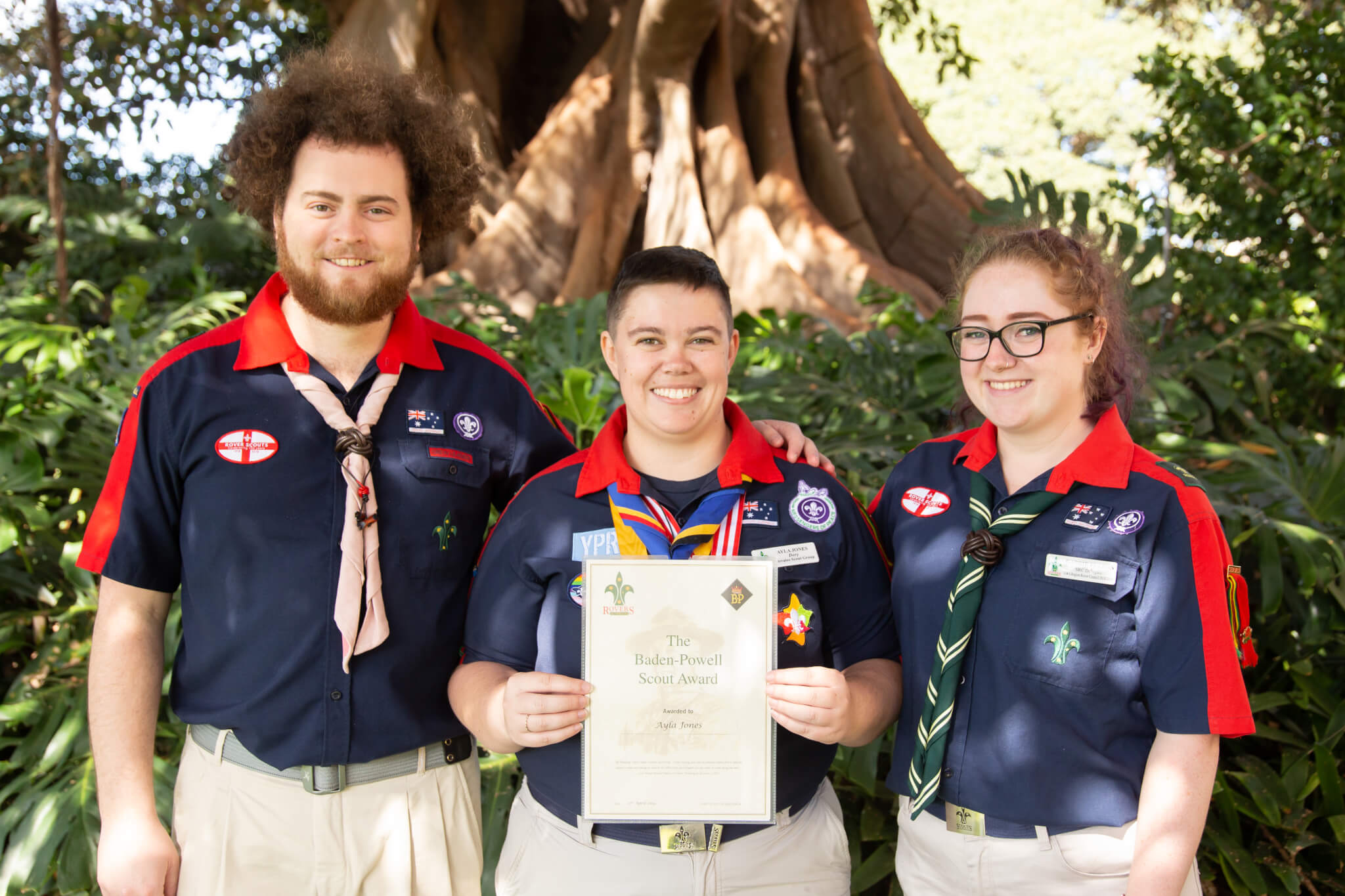
Photo by: Cecilia Jackson
My personal Scouting journey started when I was a nine-year-old Cub Scout. I have been lucky enough to attend several major Scouting events, both in Australia and internationally, and I have met so many people that have had an immense impact on my life. However, there is one story which I think on its own encapsulates the essence of these peak awards.
Confession: I have hated hiking since I was eleven years old. My first overnight hike was a bit of a disaster. I had the wrong gear, I barely slept, I lost my water bottle whilst filling it up in a stream. Hiking up the final hill to the train station in 35-degree weather, I was so dehydrated that I could barely put one foot in front of the other. Other than a few inescapable expeditions during my teenage years, by the end of my Rover Scouting career, I hadn’t tried hiking again since.
The Rover Award Scheme, prior to the introduction of the New Youth Program, required the completion of either six months of sustained physical activity, or a four-day-three-night adventurous journey. Naturally, I chose the first one, and decided on developing my abilities in a range of outdoor adventure skills. I gained experience in canoeing, sailing, abseiling, caving, and bushwalking (but only completed a day walk). At the end of six months I brought evidence of my exploits to my Rover Crew Council for approval.
However, I requested that it not be approved as I knew that despite completing the technical requirements, I had not done my best. I had not stepped out of my comfort zone, I had stopped short of a genuine challenge, and I didn’t feel deserving of the award. So… I set myself a big, hairy, audacious goal.
With barely a year left to go in Rovers, I would increase my fitness, and in nine months’ time, would walk the Overland Track in Tasmania, from Cradle Mountain to Lake St Clair. It would be a six day, five night journey in an alpine environment. The only way out was 70 kilometres through to the other end.
My Crew thought I was overly optimistic, but I was determined. It turns out though, the track wasn’t going to be my first challenge. About halfway through my training, I developed a severe knee injury, and was unable to walk for almost a month. Luckily, I recovered, and two months later I set off from Sydney to drive to Tasmania and hike the Track. Unfortunately, that was also the weekend that much of southern NSW and Victoria were beset with severe storms and 1 in 100 year rains. Driving to the start point in Tasmania ended up being through a blizzard, and at some points there was more than 30cm of snow over the road. I had never driven in snow before.
In writing this, it occurs to me that maybe this was the universe’s way of telling me that I had bitten off more than I could chew, but boy was I chewing.
The hike itself was one of the hardest things I’ve ever done. I was the last one to camp every night, and I’d forgotten how it felt to walk without pain. Despite that, day by day I could feel myself growing closer and closer to the end, and to a goal that to be honest I didn’t think was possible.
I couldn’t have made it without the support of the Rover Scouts hiking with me, who were endlessly encouraging, even when I tripped over my own feet and ended up face down, winded in the mud. I thought it was the funniest thing ever, but my now-partner was worried that I might have died (spoiler alert, I lived).
In fact, hiking the Overland Track helped me to live in the moment more than anything else ever has. To be mindful of the beauty that surrounds us and to appreciate both the quiet stillness of a morning on track, and the cacophony of forty hikers crammed into a hut, cooking meals and swapping stories at the end of a hard day.
Leaving the track, I knew that I had done my best. And to be frank, I no longer really cared whether or not I received my Baden-Powell Scout Award. The sense of trial and accomplishment, of pushing myself to the absolute limit and discovering what I was capable of, was the most important thing for my own growth and development.
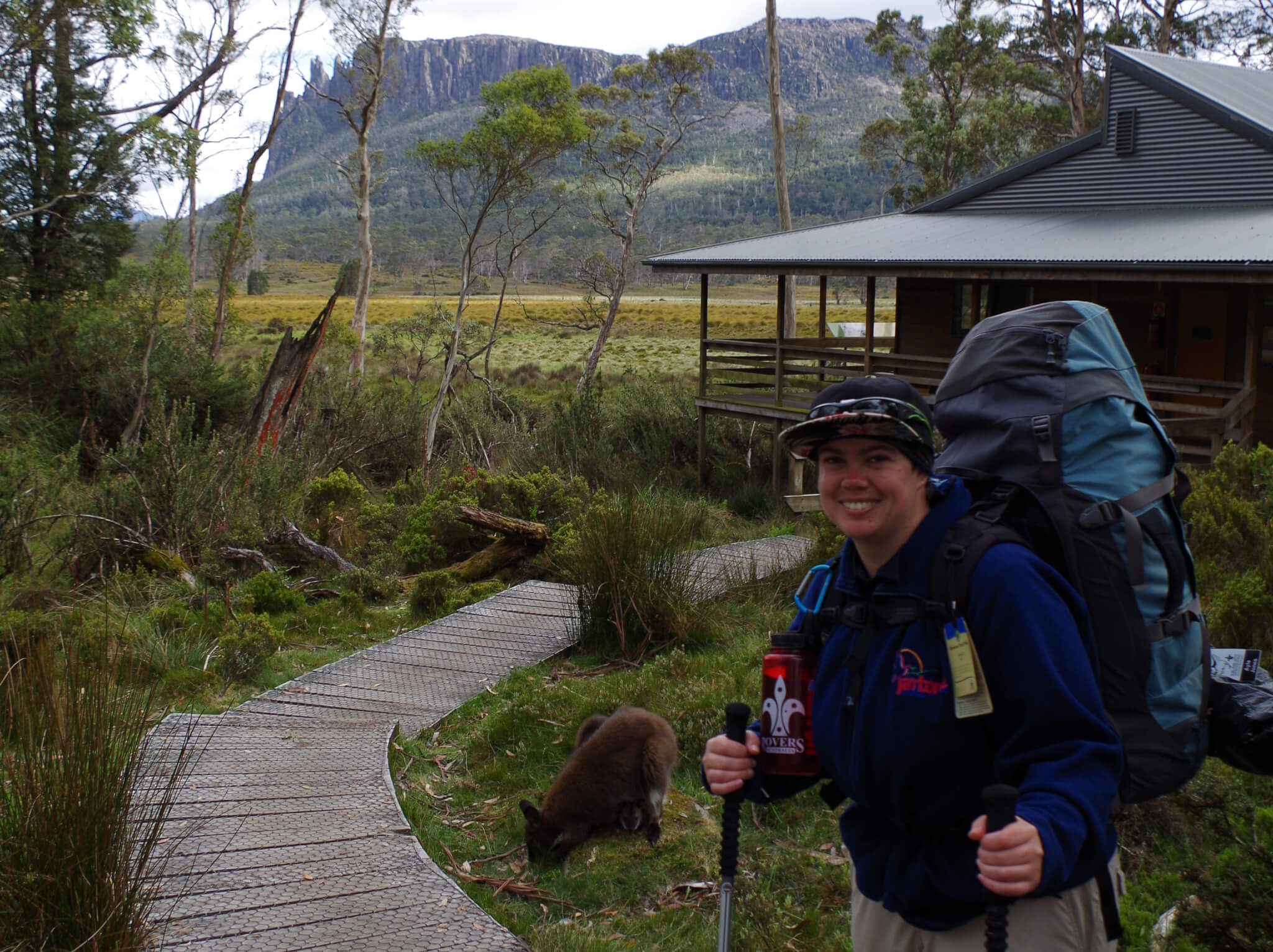
I think I now understand what Scouting really is about – doing your best, finding your own path, and comparing yourself only against who you can be tomorrow. Next time I find myself face-down in the metaphorical mud, in the middle of an emotional blizzard, or just exhausted at the end of a long day, I hope I’ll remember to take a moment to appreciate the positives and seek the support of those around me.

